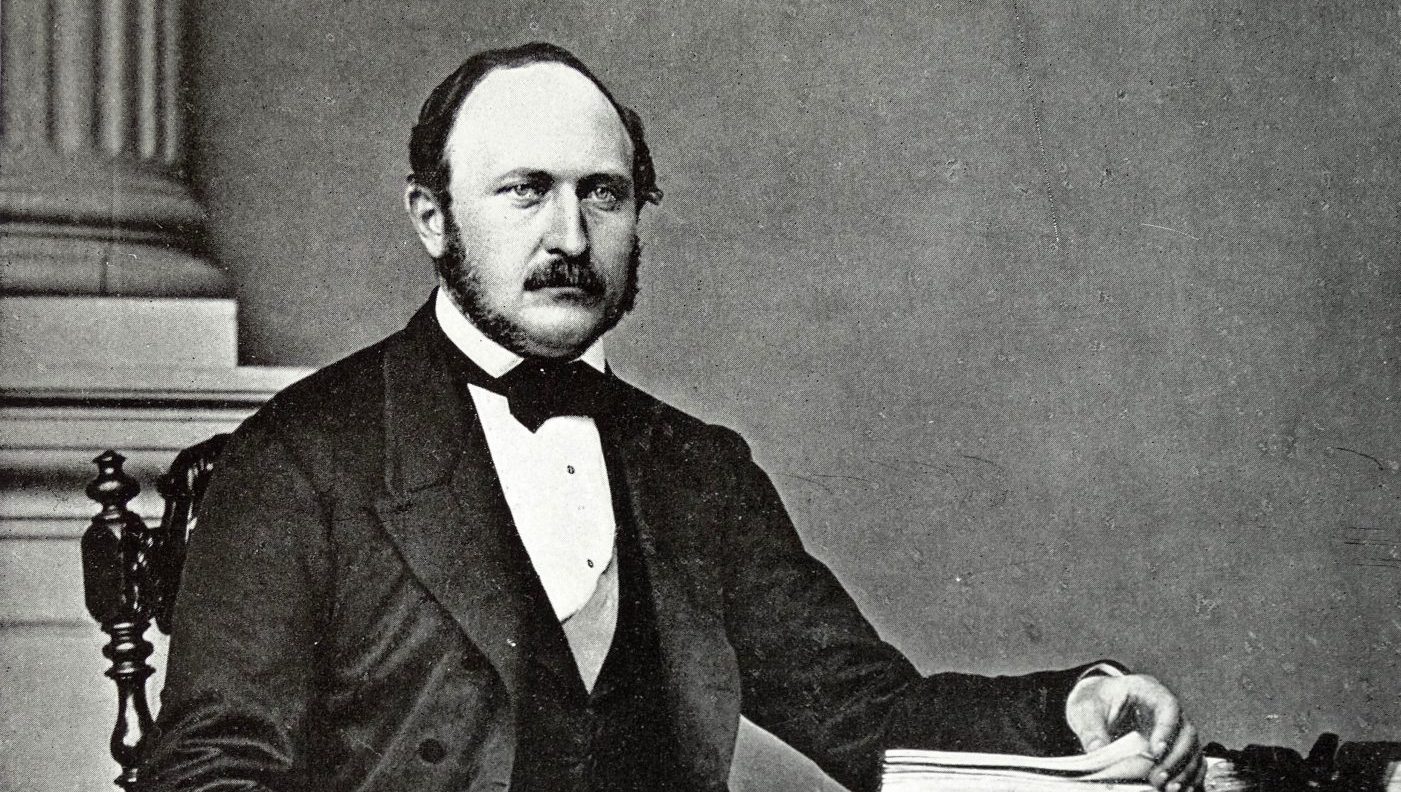When Albert, Prince of Saxe-Coburg-Saafeld, married Victoria, Queen of the United Kingdom, his first cousin, in London in February 1840, the occasion fulfilled a destiny intended for him almost since birth.
Albert was not even two years old when a possible union with Victoria was mooted, so it is small wonder that before the wedding the 20-year-old was experiencing mixed feelings.
“My future lot is high and brilliant,” he wrote to a friend in December 1839, “but also plentifully strewed with thorns.”
To the Duchess of Kent, his aunt and future mother-in-law, he wrote of an overwhelming wash of emotions, including “hope, love for dear Victoria, the pain of leaving home, the parting from very dear kindred, the entrance into a new circle of relations”.
Ahead of him lay “prospects most brilliant, the dread of being unequal to my position, the demonstrations of so much attachment on the part of the loyal Coburgers, English enthusiasm on the tip-toe of expectation, the multiplicity of duties to be fulfilled, and to crown all, so much laudation on every side that I could sink to earth with very shame”.
“I am lost,” he confessed, “in bewilderment”.
The marriage would be a happy one, certainly on a personal level, as Albert and Victoria found a deep and sincere connection. He came from a turbulent domestic background. His father Ernest III of Saxe-Coburg-Saafeld, was a serial adulterer who, when he suspected his wife Louise of infidelity, banished her from the Duchy.
Six-year-old Albert never saw his mother again. With Victoria having lost her father in infancy, the couple shared childhood insecurity and a stifling sense of royal destiny.
That destiny had been instilled in Albert from childhood: aged 11 he had written that “I intend to train myself to be a good and useful man”, and that is what he intended to be from the moment he arrived in London.
British society regarded him warily, however. For one thing, he was German. For another, his predecessors as imported regal husbands had not exactly left a glorious legacy. Philip of Spain was perceived to have had too much influence over Mary Tudor while Queen Anne’s consort was the “dull-brained, wine-imbibing” George of Denmark. Arriving to unexpected suspicion and hostility, it’s small wonder Albert was remembered by a courtier at an early ball as looking like “a kept pet, frightened to sit, frightened to stand”.
Adding to his bewilderment, despite having been assured by advisers in Germany that he would rule alongside Victoria as her equal, the opposite was true. He was not even granted the title “consort” until 1857.
Having spent his youth studying European politics and history precisely to fill a role with as much responsibility as a constitutional monarchy would allow, Albert brought with him ambitions of elevating Britain’s status in Europe and beyond, playing a leading role in a federal Europe that would include the united Germany that Albert hoped to help establish.
He had ambitions to be a British Frederick the Great: cultured, enlightened, as interested in science as he was in music and the arts, with much to offer as a statesman. His efforts to involve himself in foreign policy led to an icy relationship with the foreign secretary Lord Palmerston, but prime minister Robert Peel became his advocate, appointing Albert to chair the commission in charge of decorating the new Houses of Parliament in the late 1840s.
Albert recognised an opportunity to exploit one of his biggest enthusiasms: the promotion of public interest in art. He organised competitions and exhibitions that began a thawing of public opinion towards him. The wave of revolutions that swept Europe in 1848 also made the British people aware of troubling alternatives to this enthusiastic, art-loving German.
His greatest contribution to the nation was the Great Exhibition of 1851. Albert was the event’s highest-profile advocate, gathering mayors, dignitaries and industrialists to stoke the potential of what he termed a “living encyclopaedia”. In bringing together science, technology and the arts under one roof at the specially constructed Crystal Palace in south London, the Great Exhibition was, in Albert’s view, “the realisation of the unity of mankind”.
Six million passed through the turnstiles to view more than 100,000 exhibits, a hugely successful event whose legacy included the creation of South Kensington’s museum district, an area soon dubbed “Albertopolis”.
Having found a sense of purpose, Albert busied himself with reorganising the royal household, overseeing refurbishments and extensions to the royal residences at Balmoral and Osborne House, designing improved housing for workers as well as taking a keen interest in municipal sanitation and reforming the Cambridge University syllabus in his role as its chancellor.
Bolstered by these successes, Albert sought to inveigle himself into international matters, keen to help Britain assert itself as a dominant force and trusted mediator in Europe. Albert’s well-intentioned enthusiasm, endorsed by the Queen, rankled with ministers and bureaucrats, the Earl of Clarendon sighing that Albert and Victoria “labour under the curious mistake that the Foreign Office is their peculiar department and that they have a right to control, if not direct, the Foreign Policy of England”.
Peel’s death in 1850 had left Albert largely at the mercy of his old adversary Palmerston and, while the prince is credited with helping to preserve peace between Britain and the United States, shortly before his early death in 1861 at the age of 42, Albert became increasingly frustrated and disillusioned.
He was also lonely. Aside from his wife, who was always busy with affairs of state, Albert had few, if any, genuine friends. Particularly close to his daughter Victoria, he was heartbroken when she departed for Berlin and marriage in 1858.
His zeal doused by public apathy and establishment ambivalence, Albert became gradually overwhelmed by disillusionment. Shortly after his 40th birthday, he told his wife: “I do not cling to life. You do, but I set no store by it… I am sure if I had a severe illness I should give up at once. I should not struggle for life. I have no tenacity for life.”
Despite making a more tangible contribution to Britain than almost any royal figure since the Restoration, Albert died a disappointed man, someone who never quite understood the nation while the nation never quite understood him and both were the poorer for it.
“While I shall be untiring in my efforts to labour for the country to which I shall in future belong and where I am called to so high a position,” he had written in 1839, “I shall never cease to be a true German.”




